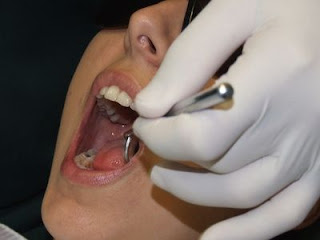Perhaps you have heard the saying that our eyes are the
windows to our souls, but it is also said that our mouths are the openings to our
overall health.
The health of our teeth and gums are big indicators of our
general health. The problems that begin in our mouths may provide clues that
connect to other health issues.
American Dental Plan has blogged about this topic before,
because of the significant connection between your oral health and how it
affects the rest of your body.
Think of your mouth as the gateway, and it is a breeding
ground for bacteria and plaque to grow and become more harmful if the
care-taker (you) does not brush, floss and see the dentist regularly to keep it
under control. Hygiene is the key to neutralize acids, ward off inflammation, cavities,
infections, and gum disease and to prevent larger health issues, such as:
- Heart disease and Endocarditis: A build-up of plaque can lead to inflammation, infection, clogged arteries and a stroke. In addition high levels of bacteria and germs can spread through your blood stream causing infection in the lining of your heart (endocardium) and can lead to Endocarditis, damaging heart tissue.
- Premature birth: Severe gum disease can lead to premature birth and/or low birth weight.
- Blood sugar and diabetes: There is an increased chance of gum disease for those who have diabetes and issues controlling their blood sugar levels.
- Osteoporosis: When people experience issues with their tooth and periodontal bone loss, this may also be an indicator that other bones in the body are becoming weak and brittle.
These and other health issues are all potential risks when
there is an absence of consistent oral care and hygiene. What can be the best
preventative approach to protect you? Follow these practices:
- Brush your teeth twice a day
- Floss ever day
- Maintain a healthy diet
- Minimize high-fructose corn syrup, starches and sugars from your diet
- Replace your toothbrush every 90 days
- Visit your dentist and dental hygienist every six months for cleanings and exams


.JPG)


